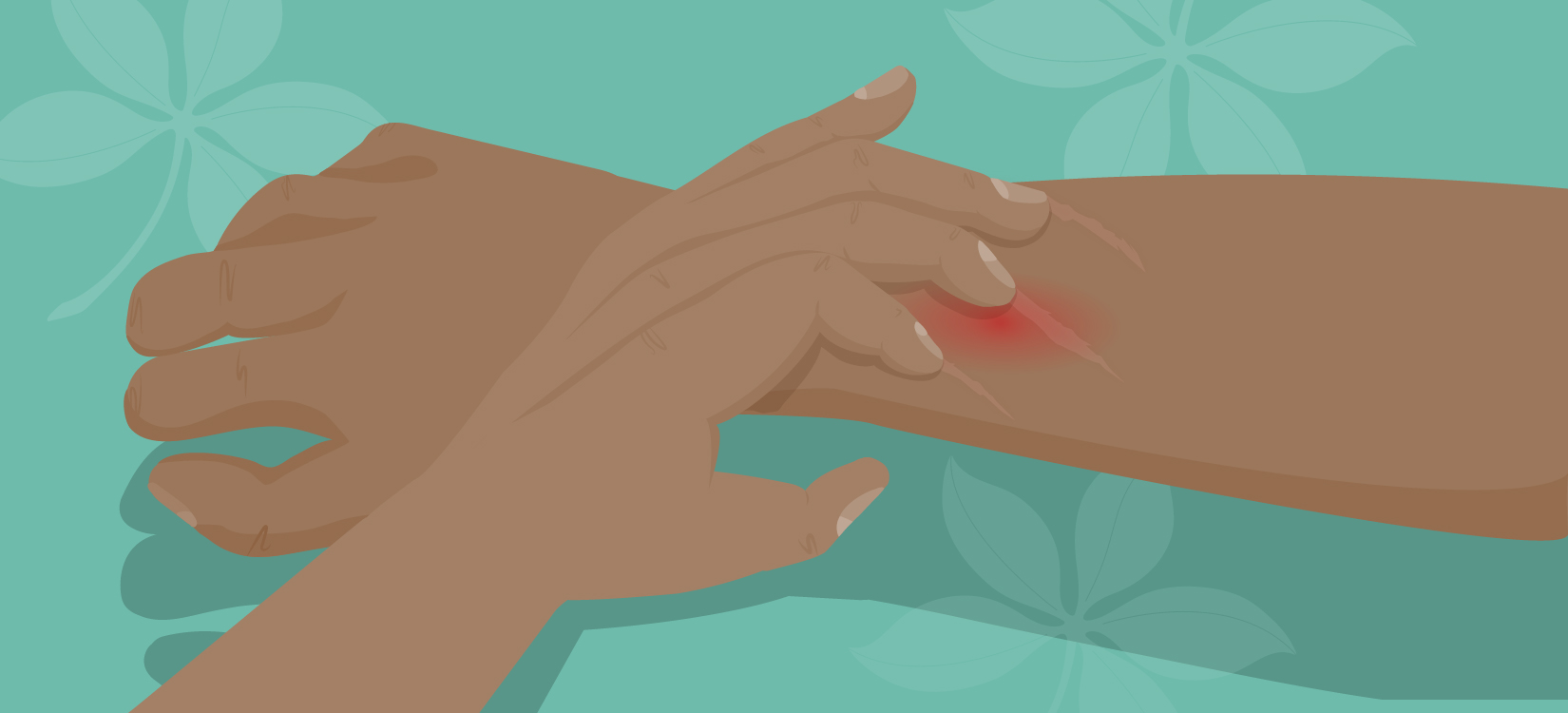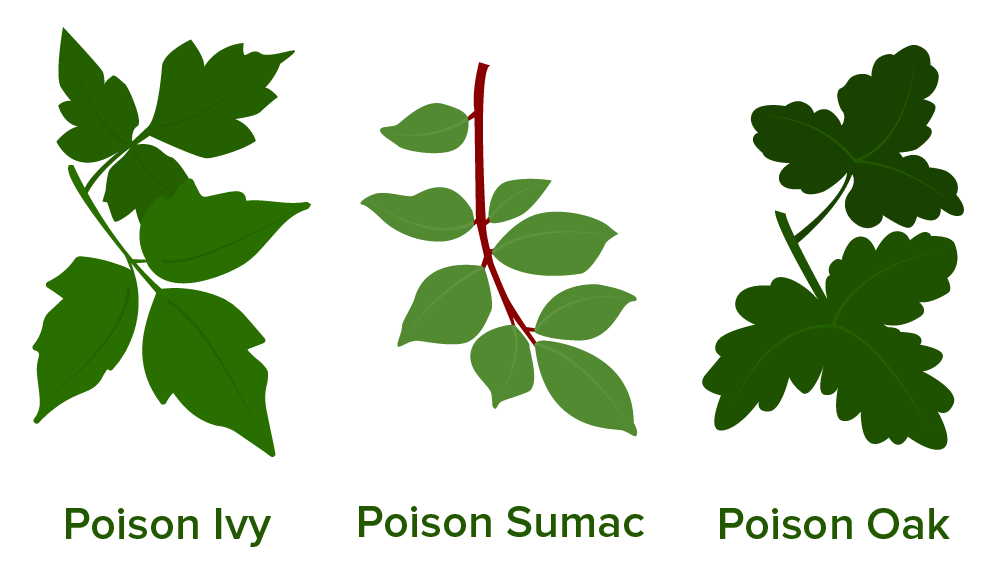Your guide to things that itch, bite and sting

Nothing spoils your outdoor adventure faster than a bee sting, mosquito attack or tick bite. Even worse, you find out hours later that you had an accidental brush with poison ivy.
Brush up on some basic prevention and treatment know-how for these troublesome annoyances – especially when we’re thinking more about those mosquito bites this year because of the Zika virus.
Family nurse practitioner Al Teets, who treats bad rashes and bumps at Ohio State Walk-in Care Upper Arlington in the Market District Giant Eagle, has a nifty trick for bee stingers using a credit card. And he wants you to wear full-coverage clothing in the woods. His advice:
"Avoidance is always the best thing, along with wearing protective clothing, using bug repellent and adopting good washing techniques."
Here’s how to handle the not-so-great bites, stings and itches:
Bites
Ticks and mosquitoes can transmit disease. Your best line of defense? Put a barrier between your skin and the insects. These tips apply to preventing the spread of the Zika virus by mosquitoes, too.
To avoid them:
- Go for full-on hiking/camping fashion for the woods or other places where mosquitos or ticks are prevalent. We’re talking hats, pants tucked into your socks and long sleeves.
- Use DEET-based repellents. DEET is approved for safe use in everyone – children and pregnant women included – except infants two months and under. Read instructions carefully to apply the right amount at the right concentration – 10- to 30-percent DEET is recommended for kids by the American Academy of Pediatrics.
- Eliminate standing pools of water.
- Keep a close eye on exposed skin for ticks when you’re in the woods. Make a deal with a person you’re with: You watch my skin, and I’ll watch yours.
If you're bitten:
- Remove ticks as quickly as possible. That’s most important! Preferably use fine-tipped tweezers, getting as close to the skin as you can. A bull's-eye rash after a bite could indicate Lyme disease; seek medical treatment quickly.
- Use cool compresses on mosquito bites and an antihistamine like Benadryl if needed to reduce the itch-scratch cycle.
- Control yourself! Scratching bites can feel good in the moment, but damaged skin could leave a scar and dirty hands could cause an infection.
- Visit a walk-in clinic or your primary care physician if a bite appears infected.
[A special note on Zika: Want to know more? Check out the central Ohio community resource page on Zika.]
Stings
Bees, wasps, hornets and yellow jackets— we need ‘em for plant pollination, but boy do they make us wince (OK, maybe cry a little) when a stinger finds its way into our flesh.
To avoid them:
- Wear less fragrance and leave your colorful, flowered clothing in the closet.
- Avoid rapid movement around them and don't swat. Really! They'll feel threatened and become more aggressive. Stay calm and they'll go away. Really!
If you're stung:
- Use a credit card or driver's license to scrape lightly against the skin around the stinger. By moving the card at different angles, you can determine which direction the stinger is embedded. Use tweezers to remove it.
- Wash any damaged skin with soap and warm water, and then apply cool compresses. If you have swelling, reduce it by taking an antihistamine.
- Call 911 or head to the nearest emergency department if you experience swollen lips or difficulty breathing or swallowing. Those signs could indicate a severe, possibly life-threatening allergic reaction.
Itches
This won’t give you much comfort: the resin that causes the itch from toxic plants, such as poison ivy, oak or sumac, is their self-defense.
 To avoid them:
To avoid them:
- Check out these illustrations to help you identify the plants.
- Wear clothing that covers your limbs when gardening or spending time in the woods.
- Wash with warm, soapy water after exposure to remove any oily residue containing toxins.
- Clean or discard anything else that was exposed – garden tools, gloves, the clothes you wore. The toxin can live on these items for a long time.
If you get a rash:
- Take an antihistamine to help control itching.
- Use over-the-counter hydrocortisone cream to reduce inflammation.
- See a medical professional if your reaction is severe. You may need a prescription hydrocortisone cream and possibly a steroid.





